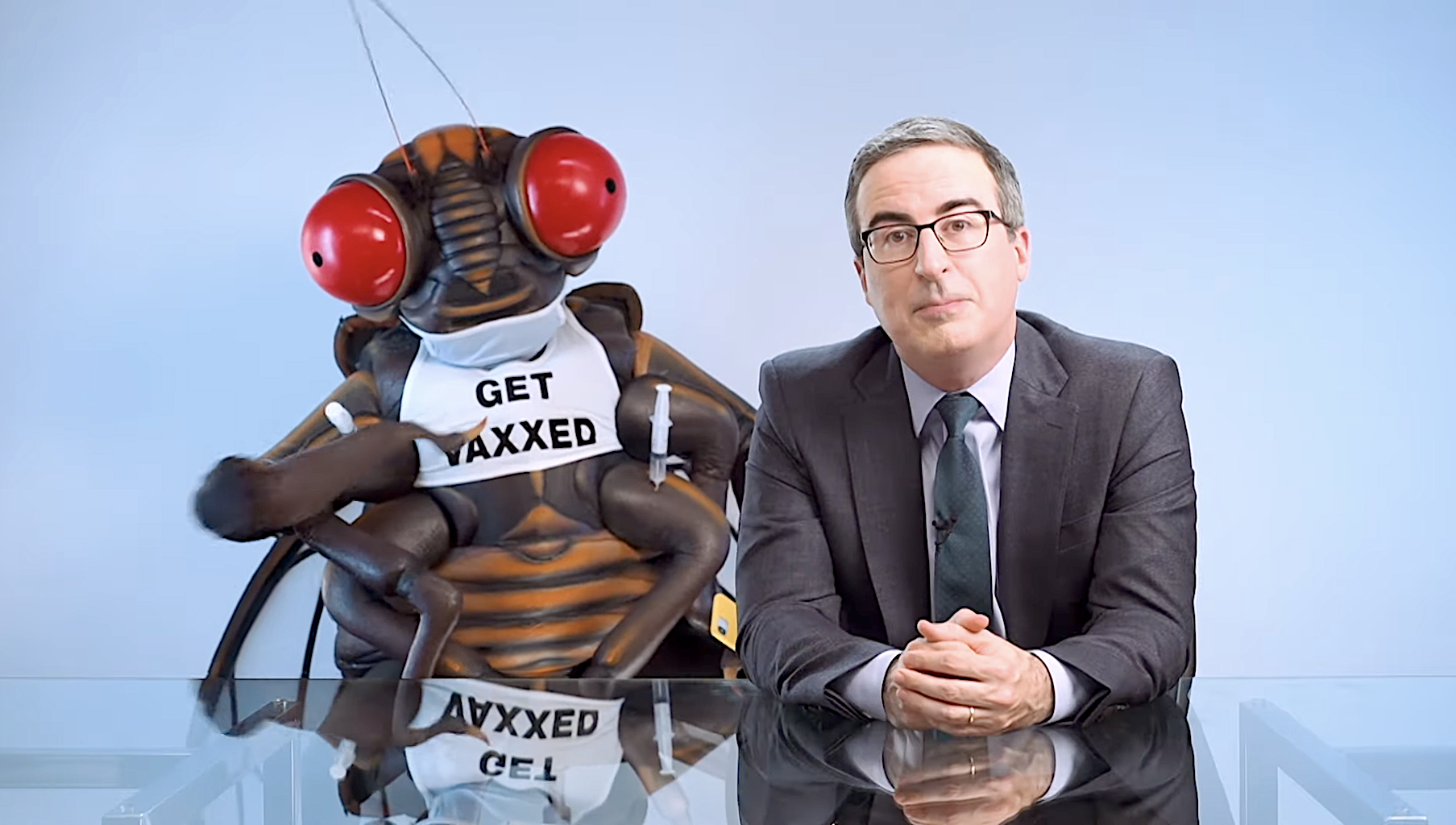John Oliver knows he won't convince your vaccine-hesitant loved ones to get inoculated, wants to help you try


A free daily email with the biggest news stories of the day – and the best features from TheWeek.com
You are now subscribed
Your newsletter sign-up was successful
The COVID-19 vaccines are "the end result of the world's greatest scientists working around the clock to save countless lives, immortalized in a card we'll all definitely lose in a month," John Oliver said on Sunday's Last Week Tonight. The terrifying outbreak in India is another reminder that this pandemic isn't over, "and obviously the world should be doing everything it can to help India right now, but our best way out of this mess long-term is clearly vaccines."
The good news for America is there's a lot of vaccine available and more than half of U.S. adults have gotten at least one dose, Oliver said. The bad news is it takes at least 70 percent vaccination to reach herd immunity and "a worrying amount of people are holding off on getting the free COVID vaccine," even though "these vaccines could save not just your life but the lives of people around you." He explained to a fictional Baltimore resident named Mike why he should ignore Joe Rogan and go get vaccinated, now. "Tonight let's talk about the COVID vaccines," he said: "Why people are hesitant, what their worries are, and how they might be reassured."
No group is "uniformly vaccine-hesitant," but one reason some conservatives are is "scrunched-face fear baboon" Tucker Carlson and his ilk, Oliver said. "And the problem is when people like Tucker raise questions without bothering to answer them, there is a lot of misinformation out there for people to then stumble on," put out by anti-vaccine groups eager to convince people that no one has answers. He spent the rest of the piece clearing up some of the biggest vaccine myths and misinformation.
The Week
Escape your echo chamber. Get the facts behind the news, plus analysis from multiple perspectives.

Sign up for The Week's Free Newsletters
From our morning news briefing to a weekly Good News Newsletter, get the best of The Week delivered directly to your inbox.
From our morning news briefing to a weekly Good News Newsletter, get the best of The Week delivered directly to your inbox.
"The key thing to remember is that no side effect of the vaccine is worse than the alternative, COVID, a disease that has killed over 500,000 people in the U.S. alone while, once again, to date the vaccine has been proven to kill exactly zero," Oliver said. "It is more than natural to have questions, but there are reassuring answers out there." The truth is, he said, "I'm not going to being able to convince the people in your life who are hesitant. The person with the best chance of doing that is you." Don't show those people this video or "dismiss or judge them for having doubts," Oliver said, just take what you've learned and "try as hard as you can." Peter Weber

A free daily email with the biggest news stories of the day – and the best features from TheWeek.com
Peter has worked as a news and culture writer and editor at The Week since the site's launch in 2008. He covers politics, world affairs, religion and cultural currents. His journalism career began as a copy editor at a financial newswire and has included editorial positions at The New York Times Magazine, Facts on File, and Oregon State University.
